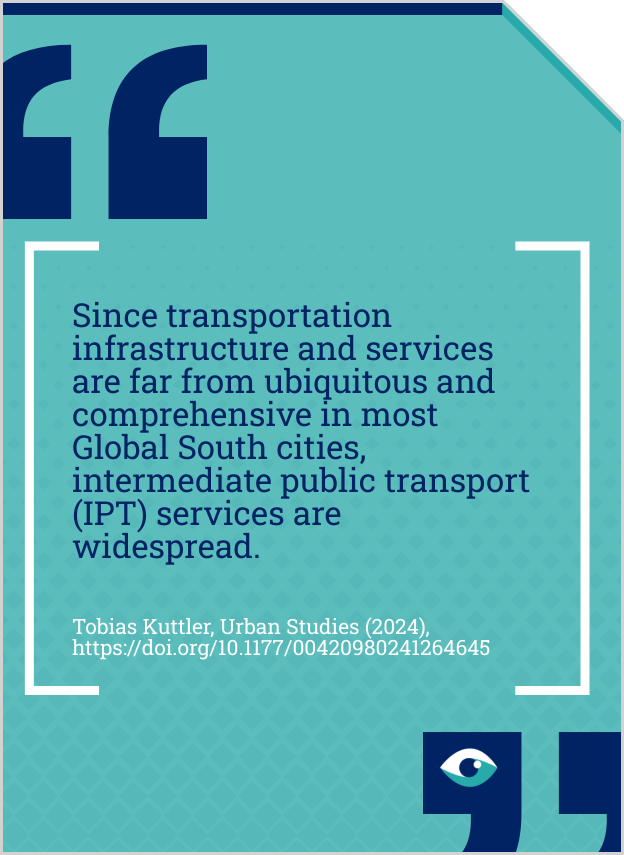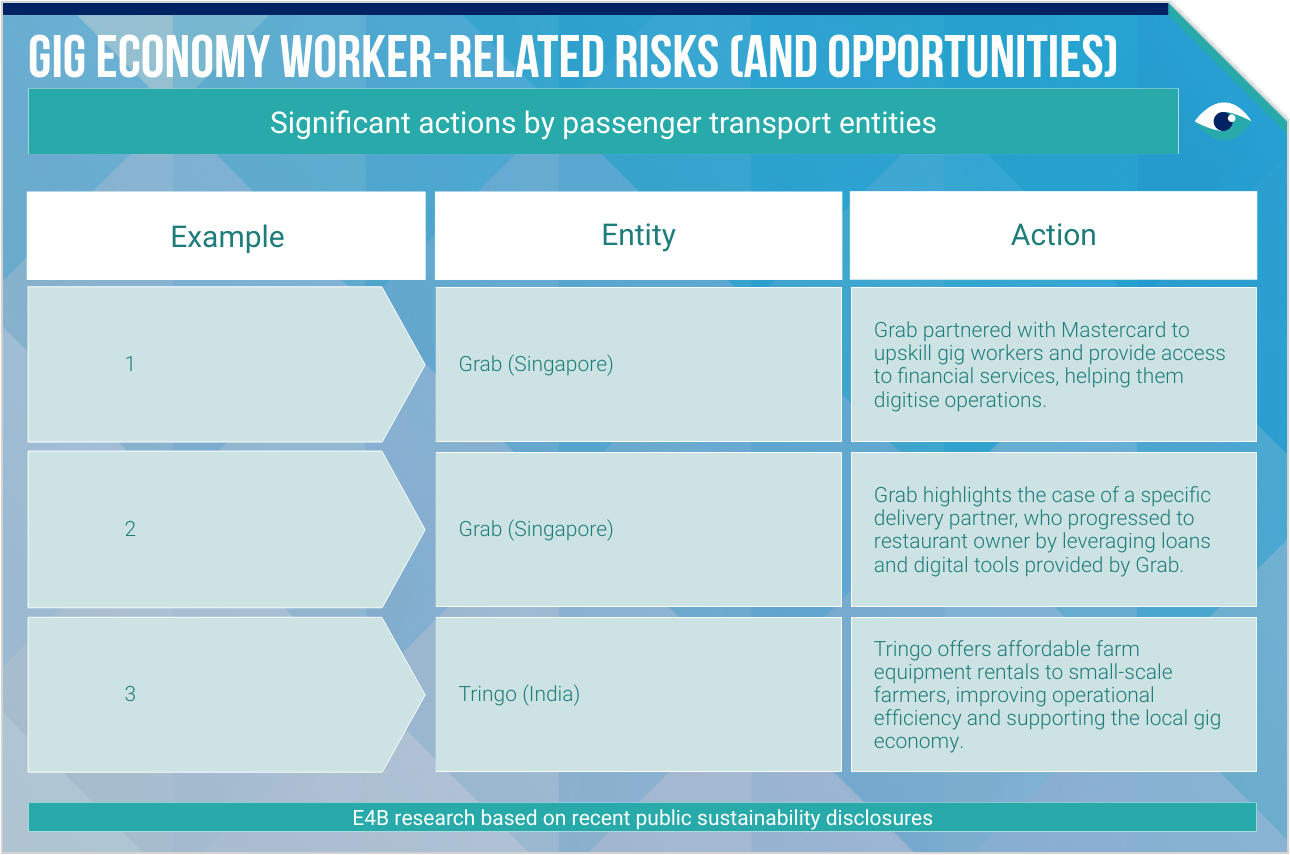In a significant ruling in mid-2024, the Californian Supreme Court ruled that drivers for Uber and Lyft can remain classified as independent contractors. Notwithstanding, the treatment of downstream workers by technology-driven transport firms presents a significant reputational risk. Passenger transport companies are facing increasing uncertainty as they balance the expectations for fair treatment of gig economy workers with potential legal and reputational consequences. Offering improved working conditions and incentives for gig workers can reduce litigation risks boost job satisfaction and enhance long-term sustainability for these firms.

Assessing risks: gig economy workers in passenger transport
Partnerships and fair distribution practices can help improve downstream relations and reduce reputational risks
Value chain: downstream
Passenger transport
AT A GLANCE
The treatment of gig economy workers by passenger transport firms poses reputational and legal risks especially in the Global South.
Addressing this risk is key to ensuring compliance with labour regulations reducing litigation and retaining customer loyalty.
Firms that prioritise worker welfare will better ensure long-term competitiveness and talent retention.

Improving worker satisfaction
Improving worker satisfaction is crucial for firms that depend on gig economy models. Studies have shown there is no significant and positive relationship between the gig economy and job advancement. Passenger transport entities must implement compensation structures that reflect downstream worker contributions. Gig workers value flexibility but the absence of long-term security and career development undermines their satisfaction. Grab's collaboration with Mastercard, which provides digital upskilling for financial inclusion, shows how targeted training can boost satisfaction and retention.
Creating growth opportunities
Creating growth opportunities is another key strategy. Firms can also enhance worker potential through skill-building such as digital marketing. Grab’s driver-partner programme is an example, with workers adopting improved IT tools and accessing new sales channels. In its latest sustainability report, Grab even burnishes its achievements bsaed on the case of a former delivery partner that became a full-time restaurant owner by leveraging loans and digital tools from the firm.

Reducing litigation risks
Reducing litigation risks is essential for firms operating in regions with evolving labour laws. Entities that fail to offer adequate worker protections such as fair compensation face legal challenges. Ignoring worker welfare invites scrutiny as governments particularly in the Global South tighten regulatory pressure on businesses. Tringo’s farm equipment rental model in India shows that providing essential resources at affordable rates mitigates risks.
Ensuring long-term viability
Ensuring long-term sustainability requires alignment with labour regulations. Firms neglecting gig worker welfare risk reputational damage and talent shortages. This leads to short-term disruptions and long-term financial penalties. Additionally, debates about worker classification and growing demands for transparency in social and environmental reporting create an incentive for passenger transport entities to meet higher standards for downstream partners.
FURTHER READING
- Gig economy impact (CIPD)
- What motivates workers in the gig economy? (WEF)
- Examining the impact of the gig-economy (Journal of Business and Retail Management Research)
